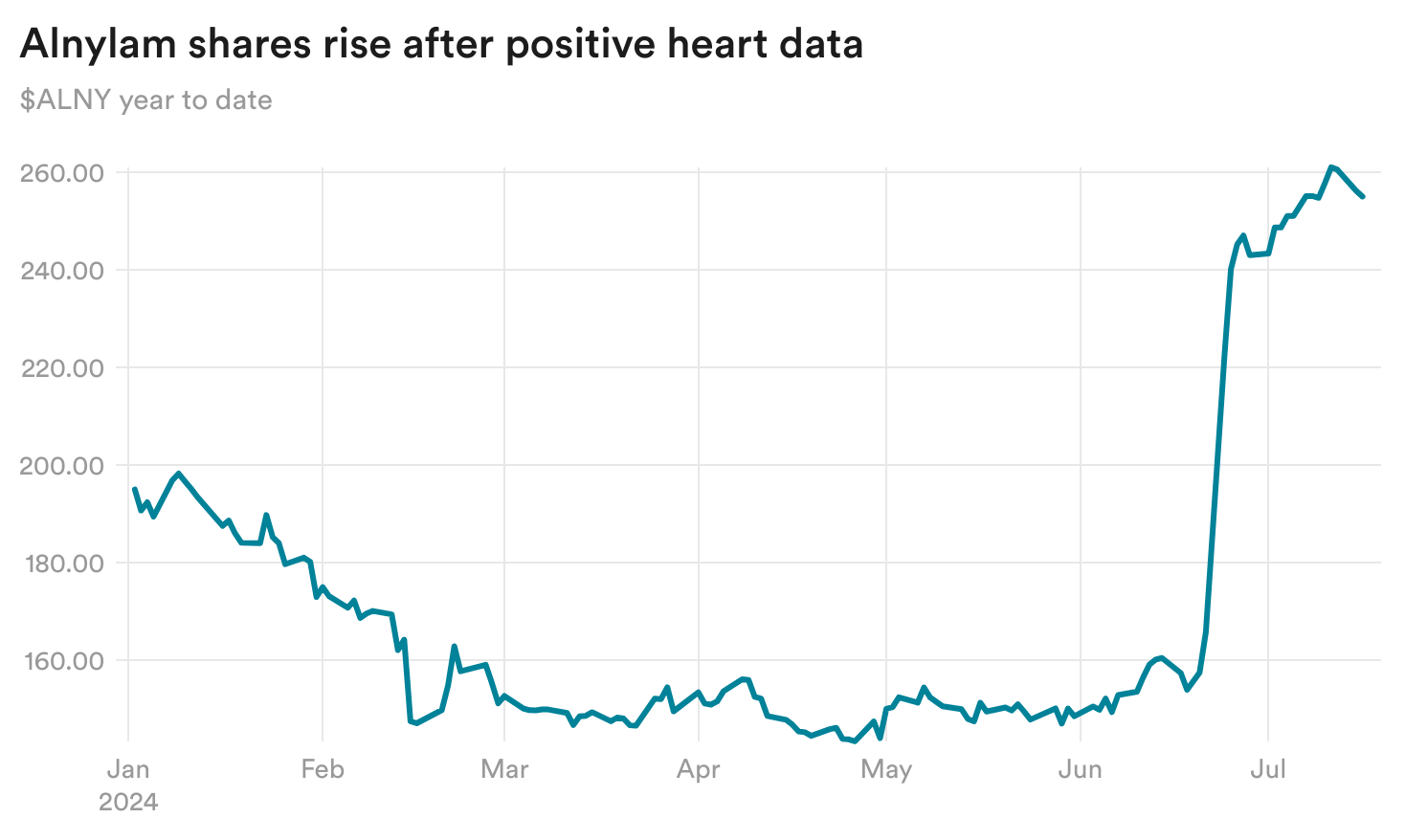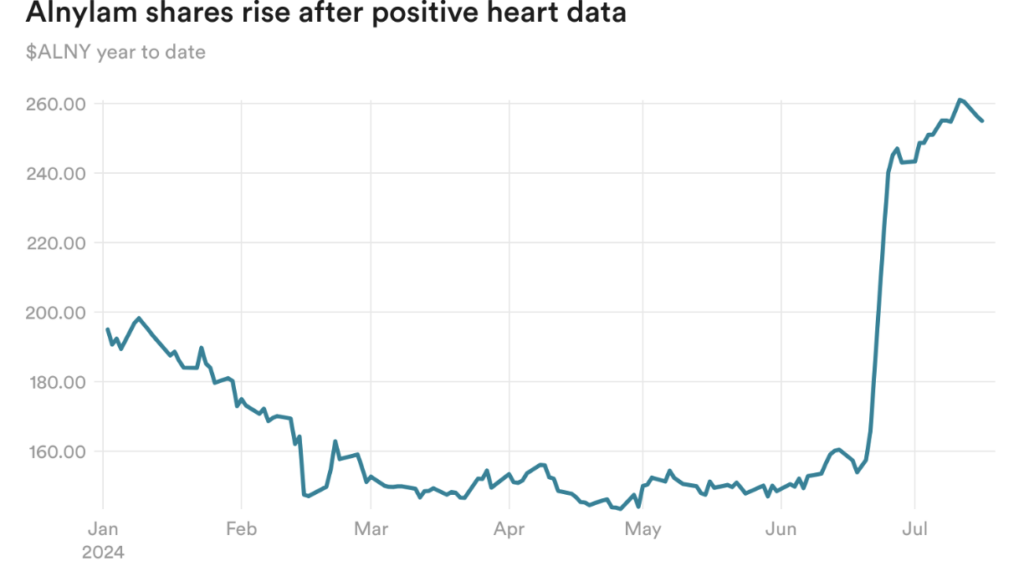Good morning and happy Wednesday. Today we’re talking about insulin, pharma’s ties with politicians, and some nice champagne.
The need-to-know this morning
- Roche shares traded higher on positive weight-loss results from an early study of an oral GLP-1 drug candidate that the Swiss pharma giant picked up in an acquisition last year.
- Johnson & Johnson reported second-quarter earnings that topped Street consensus, but its profit outlook for the remainder of the year was trimmed slightly due to expenses tied to recent acquisitions.
- Cassava Sciences said CEO Remi Barbier has resigned and will also leave the board. Lindsay Burns, Cassava’s senior vice president for neuroscience and Barbier’s wife, is also leaving the company. The announcement comes after a key outside science collaborator was indicted for alleged fraud.
Patients on insulin fear the GLP-1 gold rush is leaving them behind
As Novo Nordisk and Eli Lilly invest billions to scale up manufacturing capacity for their highly profitable GLP-1 drugs, diabetes patients around the world are suddenly facing shortages of various insulin products.
advertisement
In the U.S., U.K., and South Africa, vials and pens of insulin (which are similar to the pens that GLP-1 drugs come in) have been out of stock, leading patients to worry that Novo and Lilly are turning resources away from insulin and toward GLP-1s.
.png)
As shown above, GLP-1 sales are expected to continue to rise while insulin becomes a smaller and smaller part of the companies’ businesses. Even so, patients and doctors feel that Novo and Lilly have a responsibility to ensure continued access to lifesaving insulin after having dominated the insulin market for so long.
advertisement
Patent-targeting bill was watered down by industry, sources say
Last week, legislators boasted about a bill passed by the Senate that aims to thwart the use of so-called “patent thickets,” the slew of patents that companies hold to protect their brand-name drugs from generic competition.
But looking closely at the bill, some experts see it as only a modest achievement, and sources say the pharma industry has been lobbying to water it down for years.
Read more from my colleagues Ed Silverman and Rachel Cohrs Zhang.
Menendez conviction leaves pharma with one less friend
After a New York jury yesterday found New Jersey Sen. Bob Menendez guilty on bribery and foreign-agent charges, he’s unlikely to remain in his post. With that, the pharma industry will be losing a key ally on Capitol Hill.
Menendez’s state is home to J&J and Merck, among other drugmakers, and his voting record has often aligned with the industry’s interests. In 2019, he sided with Republicans voting against price caps and drug negotiations, and in 2021 he opposed pricing reform. He’s also received significant donations from pharma CEOs.
Read more from my colleague Annalisa Merelli on who might replace Menendez and the implications for the industry.
Cardiovascular startup Cardurion raises $260 million
Cardurion Pharmaceuticals has raised $260 million in a Series B round led by Ascenta Capital, a new VC firm led by former Moderna execs Lorence Kim and Evan Rachlin.
Startups don’t often pursue drug candidates in heart disease, and even big pharma companies have backed out of this area at times. But this is where Cardurion’s founders saw an opportunity. The startup is studying one drug in heart failure and another one in a rare genetic condition that causes people’s hearts to beat too quickly.
Read more from my colleague Allison DeAngelis.
It’s happy hour (for now) for Alnylam
Shares of Alnylam have been riding high since the biotech last month reported positive results from its pivotal HELIOS-B trial in ATTR-CM. The stock is now up 28% year-to-date.
There are still many lingering questions about the full dataset that will be presented at the European Society of Cardiology conference next month, but for now, Alnylam’s founding CEO John Maraganore is basking in the stock surge while he can.

In his tweet, Maraganore said it’s been a decades-long tradition of having nice champagne for every $50 increase in Alnylam’s share price. It does indeed look to be a nice bottle.
More reads
- A teenager faced constant seizures. Could a drug developed just for him stop them?, Endpoints
- German CDMO CordenPharma invests $981M to boost GLP-1 manufacturing capacity, Fierce Pharma
- UnitedHealth CEO concedes company was ‘over-optimistic’ about Change cyberattack recovery, STAT
- Why clinical trials for digital therapeutics are getting more rigorous, STAT

